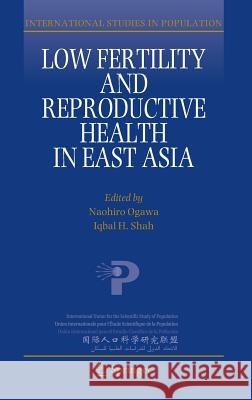Low Fertility and Reproductive Health in East Asia » książka
Low Fertility and Reproductive Health in East Asia
ISBN-13: 9789401792257 / Angielski / Twarda / 2014 / 220 str.
Low Fertility and Reproductive Health in East Asia
ISBN-13: 9789401792257 / Angielski / Twarda / 2014 / 220 str.
(netto: 460,04 VAT: 5%)
Najniższa cena z 30 dni: 462,63
ok. 16-18 dni roboczych.
Darmowa dostawa!
This book provides a unique blend of social and biomedical sciences in the field of low fertility and reproductive health. It offers a significant contribution to understanding the determinants of low fertility mostly in East Asia, including an assessment of the effectiveness of policies that aim to raise fertility. It introduces new analytical tools and methods and shares application of innovative approaches to analyzing cross-sectional and longitudinal survey data and macro socioeconomic data to shed light on changing mechanisms of low fertility in the context of reproductive health.The volume introduces the demographic dividend into the study of fertility, analyzes possible impact of population ageing on the amount of resources allocated to child rearing, i.e. the so called "crowding effect" in social care and public spending between the elderly and children. The book also tests the Low Fertility Trap (LFT) hypothesis, a new important theory regarding fertility trends.The book focuses on East Asia which is numerically large but relatively under-researched with regard to issues covered in various chapters. The relevance of the volume, however, goes beyond countries in East Asia.The book breaks new grounds and reveals little known facts regarding the influence of endocrine disruptors on male fertility through falling sperm counts, the phenomenon of marital sexlessness and about the sexual behavior of adolescents in East Asia.











